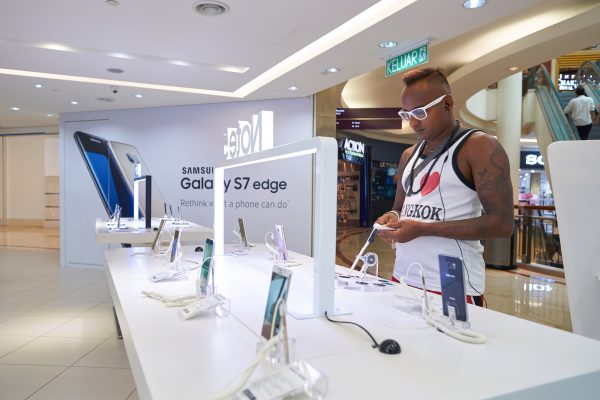
Around the world the race is on to upgrade telecom networks to 5G. In most countries the way this works is that the government auctions off spectrum licenses to telcos, which then have the right to use a particular frequency for a long period of time, say 20 or 30 years. Theoretically, a competitive bidding process reveals the true market value of the spectrum, because telcos won’t spend more to acquire the rights than they can make back over the life of the license. It also generates big revenue streams for the government, as these licenses can go for billions of dollars.
Once the telco has the license, they now have an incentive to invest in the capital-intensive physical infrastructure necessary to build out and support their network. The licenses also provide a kind of certainty that makes it easier to figure out capital expenditure plans and calculate returns on investment over a long time horizon. The upfront costs are large, but they are fairly predictable and can be spread out over many years.
However, in recent years data usage has begun to increase quite rapidly. Moreover, the need to upgrade to 5G, only a decade or so after making expensive investments in 4G, means these upfront capital expenditures are starting to really add up. This is, at least in part, what’s driving the move toward consolidation in places like Thailand, where telcos are finding it preferable to merge so they can leverage economies of scale to meet ballooning investment demands.
For its 5G rollout, Malaysia has adopted a somewhat novel approach. Rather than auctioning portions of the 5G spectrum to various telcos, it has created a new state entity called Digital Nasional Berhad (DNB), which will itself own the spectrum licenses and build out the physical network infrastructure. Malaysian telcos will then pay DNB to tap this network. in other words, DNB will become the national wholesaler for all 5G access in Malaysia.
There are a couple reasons Malaysia wants to do it this way. The first is a matter of cost, and the government has been pushing this hard. A technology like 5G benefits from economies of scale and tight coordination. If five separate telcos are all building their own 5G networks, it will cost more and take longer. With DNB acting as the coordinating body for a single national network, they can get 5G contractors to bid against each other and save money. According to government projections, DNB can build a single national network for 16.5 billion ringgit ($3.9 billion) including corporate and operating expenses. If the telcos do it themselves, the government estimates it could cost up to 35 billion ringgit ($8.3 billion).
The other reason is one of control, and geopolitics. National telecommunication networks are intensely political, and the role of foreign ownership and foreign technology can be very controversial. With DNB building and operating the network, and retaining control over the 5G spectrum, the government ensures that this critical national asset remains under tight supervision.
Malaysia’s telcos, on the other hand, don’t really see it this way. Reuters reported that at least four telcos including industry leaders Celcom, DiGi, and Maxis are now actively opposing the plan and calling for a second national 5G network. The main concern is obvious: they will be entirely dependent on a third party, DNB, for access to critical network infrastructure. What if the cost to build the 5G network goes over the expected 16.5 billion ringgit budget? DNB would likely try to recoup those overruns by charging the telcos higher network access fees, and they would be completely powerless to do anything about it.
Another issue is that DNB will prevent Malaysian telcos from bidding on and holding extremely valuable 5G spectrum licenses. In doing so, it will make the existing licenses they hold less valuable. In 2020, for instance, Maxis listed 11.5 billion ringgit ($2.7 billion) in intangible assets, mostly from the 3G and 4G spectrum licenses that it has. If it cannot bid on 5G spectrum space, and the government forces operators to move off of older spectrum frequencies which they already hold licenses for, it will eat away at the value of their assets and hurt their balance sheets.
In principle, having the state build a single national wholesale network rather then letting private companies do it piecemeal has some advantages. But it does require telcos to get onboard and make some sacrifices and if they won’t, it’s going to be a long slog for everyone involved. In this respect, the Malaysian cabinet may have seen the writing on the wall. In January they will be reconsidering the entire plan, and I wouldn’t be surprised if they scrap it altogether, meaning that Malaysia’s national 5G wholesale network experiment might be over before it even gets started.
Malaysia’s National 5G Wholesale Network Experiment
Source: Frappler

0 Comments